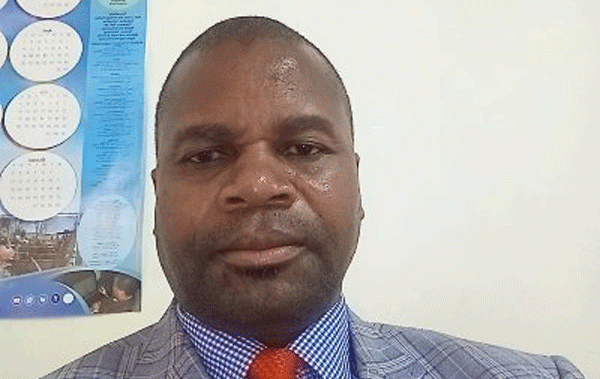
By Peter Makwanya
IN accelerating the rate of global warming, human activities are chief drivers of greenhouse gas (GHG) emission. Land barons, who are in the business of buying pieces of land for resale, are not talked about when issues of climate change are discussed. They contribute to serious environmental and social violations, which should be addressed in order to manage biodiversity losses.
Land trafficking can be described as, the illegal appropriation of land for resale for building or commercial purpose.
Invasion of land is linked to lack of urban land for building purposes, rural to urban migration, rural to rural migration or urban to rural migration due to climate change.
Land barons continue to hide behind human activity. Land barons use money and status to acquire land, mainly in undesignated landscapes for resale and building purposes.
Most of this urban land is important for carbon sequestration.
When these landscapes are deforested, degraded and left bare, they disturb the natural ecological cycle and release greenhouse gases (GHGs), mainly methane into the atmosphere and cause it to warm.
The main traffickers of land are proxies of political bigwigs, urban, rural or local authorities with lots of influence on land trading and allocation.
- Chamisa under fire over US$120K donation
- Mavhunga puts DeMbare into Chibuku quarterfinals
- Pension funds bet on Cabora Bassa oilfields
- Councils defy govt fire tender directive
Keep Reading
Some of the trafficked landscapes are natural habitats to a wide variety of wildlife and indigenous communities living side-by-side with animals in the game parks and they depend on the forests for their livelihoods.
In urban areas, wetlands, floodplains and other low-lying areas acting as buffers are mainly targeted.
Home seekers normally purchase stands in these areas out of desperation and go on to build without a proper environmental impact assessment (EIA) being carried out.
When it rains heavily, houses or buildings are covered by water, making movement impossible.
There are also undesignated forests that are not suitable for human habitation because of their poor soils which cannot sustain the density of buildings which are cleared and deforested for human settlement and agricultural purposes.
When forest cover is reduced, their role of acting as carbon sinks is rendered useless.
In Zimbabwe, the term “land baron” is the most preferred one, while the term, land traffickers has never been used, hence it is continuously backgrounded.
It is high time that this community of practice is called by its name or nature of business in order to shame land trafficking and expose it.
Land trafficking sufficiently identifies with the murky business of land barons and they must be called as such.
Towns and cities are on the frontline of the physical risks associated with climate change, therefore, sustainable land allocations and uses should be preceded by due diligence.
These areas of particular climate risks are dominated by floodplains and wetlands and their natural roles of regulating flooding and purification of water must never be disturbed.
These also include wetlands acting as home to a wide range of natural ecosystems, bushes, grass, flowers and shrubs.
Creatures like birds, butterflies, frogs, reptiles and those in the water and underneath, that help to keep carbon underground, make wetlands what they are.
These trafficked landscapes are biodiversity hotspots where natural ecosystems interact and provide a magnificent view to nature in its diversity.
Therefore, degrading of wetlands and floodplains to build houses will contribute to rendering all the above-mentioned creatures and species homeless leading to their death and leaving the ground bare and exposed to heat.
This will also lead to free-flowing of floods damaging roads, and infrastructure such as bridges, powerlines, underground pipes, houses and other buildings like schools, clinics, shops and recreational facilities, among others.
It is not only infrastructure that is affected but also health and well-being of people.
Land traffickers are not concerned about all these repercussions, hazards and risks as they are preoccupied with selling land to realise quick monetary returns.
What surprises many people is that these land traffickers always evade the long arm of law considering the damage they cause to the environment and ecosystems.
These land traffickers may pay to avoid the law and arrest but they cannot pay to avoid environmental degradation and greenhouse gas emission.
Corruption plays a leading role in facilitating these illicit practices.
Land traffickers normally take advantage of the loopholes in any country’s given laws, duplication of duties and conflicting laws of councils, municipalities, local authorities and ministries.
As a result, when the damage is done, no known entity wants to be accountable and assume responsibility hence it would appear as if all the above-mentioned institutions do not exist.
Many countries’ natural forests have not escaped prying eyes of the greedy multinational corporation land and forest traffickers who specialise in highly organised forest product trafficking in timber harvesting and commercial logging, smuggling and trading leading to massive deforestation and degradation.
This also include trading in wild animal products like hides, tusks, horns thereby contributing to animal relocation or extinction.
All these illegal activities reduce forest cover, destroy landscapes and disturb flora and fauna through organised poaching syndicates.
All these are human activities which are drivers of land use changes with large ecosystemic impacts leading to the release of carbon emissions into the atmosphere.
All these vices are always kept out of the public glare, to avoid detection and exposure.
Christening land traffickers land barons is like sanitising the illicit trade and it is high time that the use of the correct term which defines these behaviours is adopted.
- Peter Makwanya is a climate change communicator. He writes in his personal capacity.











